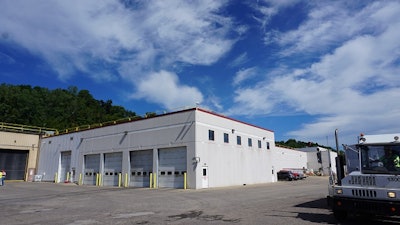
For its community contribution, Pilgrim’s Pride Corp.’s plant in Arcadia, Wisconsin, was selected as the winner of the 2022 U.S. Poultry & Egg Association’s Clean Water Award in the pre-treatment category.
The pretreatment category covers facilities that discharge pretreated effluent to a publicly owned, full treatment facility for further treatment. To be eligible, a facility must have at least two years in which no significant non-compliances or notices of violations have occurred. Judging is based upon training, unique processes utilized for treatment, community outreach, wildlife management, water conservation and general environmental stewardship.
Water pre-treatment
The Arcadia operation processes about 200,000 broiler birds daily at an average weight of 4 pounds. Its wastewater pre-treatment facilities handle about 1 million gallons of water per day. The pre-treatment operation utilizes screens, specialized treatment chemicals and dissolved air flotation before discharging it to the City of Arcadia.
Ryan Guza, Pilgrim’s complex environmental manager at the Arcadia plant, said the structure was originally built as a brewery in the 1950s and converted to a poultry processing operation in the 1970s. The most recent renovations to the wastewater operation were completed in 2007.

Stream restoration
In 2020, the plant partnered with the city’s Wastewater Department and Trempealeau County, Wisconsin’s Department of Land Management to execute and complete two water quality trade projects.
In action, the project helped lower the phosphorous level in streams near the city to offset effluent phosphorous limits. Guza said the program brought additional benefits in the form of stream and habitat restoration.
Two different locations upstream of Arcadia were selected for improvement because of their high phosphorous contribution as a result of high levels of runoff and bank erosion. The project stabilized streambanks damaged from erosion and cattle hoof traffic by reinforcing the banks, removing the cattle, installing vegetative buffers and working with landowners to create a farm use limitation plan.
Along with these improvements, the collaboration put 20-year agreements in place to assure better land management practices that will limit phosphorous levels in local waters and protect habitats valued by wildlife and sportsmen alike.
Water conservation
Pilgrim’s Pride, the second largest chicken processor in the United States, is prioritizing water conservation and reuse across the company. Guza said Pilgrim’s is shooting for a 15% reduction in overall water use, as compared with use in 2019, by 2030.
At Acadia, that meant convening to find opportunities for use reduction. One improvement that has been made so far is the addition of water meters around the plant designed to gather data about the areas of the plant with the highest water usage.
By using data collected by those meters, for example, the team was able to identify one specific process where water use could be halved without hurting productivity.
Solving a unique problem at Tyson’s Berryville, Arkansas, plant www.WATTAgNet.com/articles/43923


















